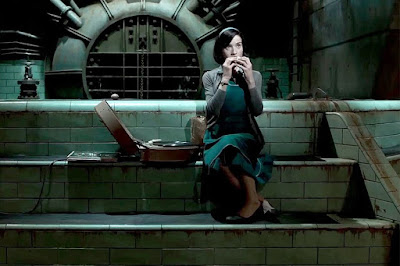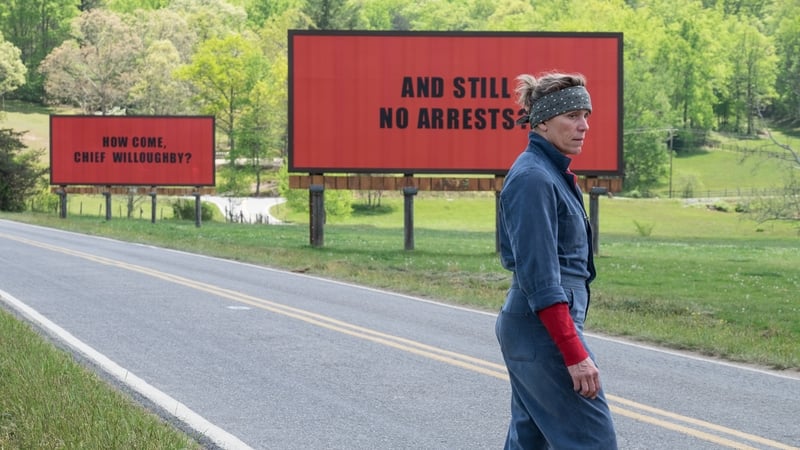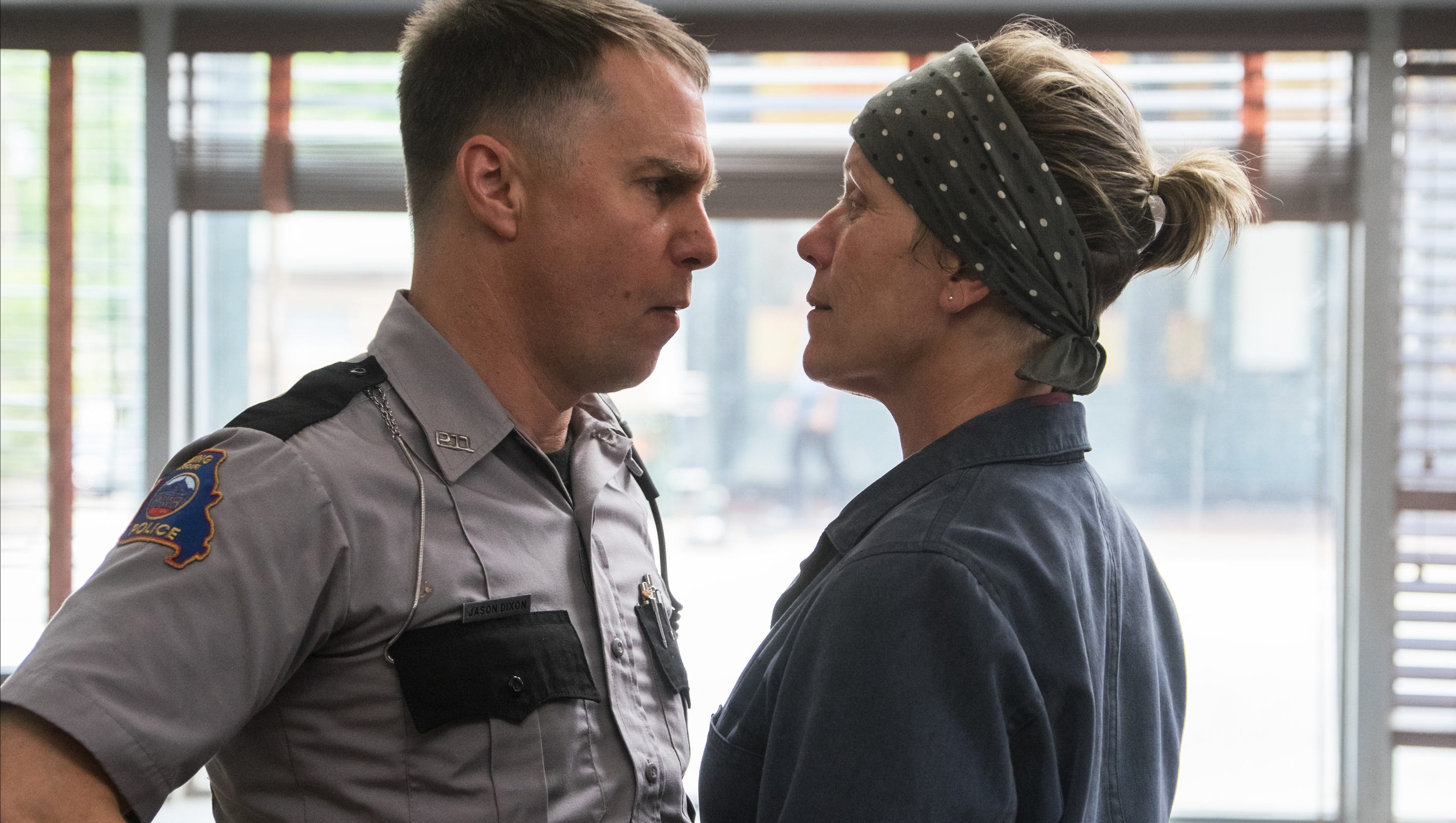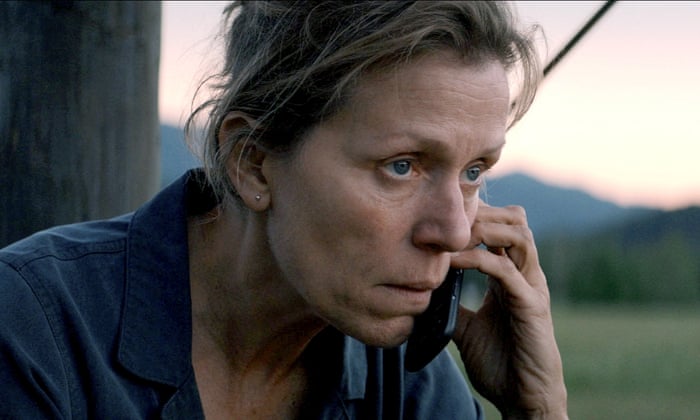Black Panther is predicted, and largely on track, to become one of the year's biggest films. It has been praised for breaking the Marvel formula, making strides in film representation and is largely loved by audiences and critics alike. With acclaimed director Ryan Coogler in tow, Marvel seem to have created a film that has really tapped into modern sensibilities and where we should be aiming to go with representation on screen. All this is very true ... yet, I found Black Panther to be ... ok. I'm sorry.
Black Panther picks up soon after the events of Civil War. The African state of Wakanda is mourning the death of its king but are also celebrating the ascension of his son, T'Challa (Chadwick Boseman), to the throne. Wakanda for centuries has maintained the illusion of being a poor country but in reality they hide a highly-advanced technologic city, housing both wealth and some of the most brilliant minds in the world. It remains hidden because the city was built on one of the most precious materials in the world - vibranium - and they hold it to be their responsibility to protect it. And in control of this nation is the Black Panther, a great power passed on from generation to generation. T'Challa and co. don't have long to celebrate before they go on a mission to hunt down Ulysses Klaue (Andy Serkis), an enemy of Wakanda. However, they soon discover that Klaue has a connection to an even bigger threat, one that could potentially destabilise Wakanda as a nation and bring its ideology crumbling to the ground - Erik Stevens, aka Killmonger (Michael B. Jordan).
I think Black Panther's biggest problem is the first half. There's plenty of interesting elements, for sure and I'll get onto that, but it all ends up feeling somewhat clumsy. There are new characters that need to be introduced, world building to be done, plot strands to resolve from Captain America: Civil War and even further back from Avengers: Age of Ultron and a slightly underwritten hero at the centre trying to keep it all under control. I just think it's a case of trying to do a bit too much all in one go. Individually these elements are fine - Wakanda is well-establish, we understand the complex mythology of the nation, the loose plot strands from previous films are picked up and resolved and the new characters are good (which I'll get to). However, it's a lot of baggage to get out of the way, and some underwhelming action scenes, before getting to real crux of the film, which only appears after in the second half.
I found T'Challa to be a bit of a stick in the mud in Civil War. I wished that Black Panther would go to show another side of this character, to make me care about him. After all, Black Widow kinda sucked in Iron Man 2 but Joss Wheadon made her into a compelling character in The Avengers. And certainly T'Challa reveals new stripes, for sure, but not enough to make me care for his character. Royalty are often difficult characters to write, mostly because most people aren't royalty thus are difficult to relate to. I was oddly reminded of The Lion King throughout this film. That film is one of the rare occasions where the plight of a prince is really relatable. Consider this. Both T'Challa and Simba are African princes and come from a line of proud kings but are faced with the burden of taking on their deceased father's legacy. A usurper to the throne appears that challenges the main character and both are forced to rise up from the ashes to take their true place. The difference? Simba blames himself for his dad's death. Relatable. T'Challa .... just kind of goes along with the narrative flow. We know he's a good guy and his actions never really come into question, outside of trying to come to terms with his father's morally questionable legacy. Outside of him learning to become a better king, I guess this just makes for a bit of a flat character arc. Is it a good performance from Chadwick Boseman? Definitely. But there's just no meat for the character.
 |
| Chadwick Boseman turns in a good performance as T'Challa, aka the Black Panther, but it's not enough to get past a flat character arc |
These issues aside, there is a lot I did like in Black Panther. As I said, I evened out at enjoying the film. In fact, I like T'Challa's cavalcade of sidekicks more than him! Leitita Wright is a complete delight as T'Challa's sister Shuri, a brilliant hyperactive teenage scientist. With brains to match even Tony Stark, Shuri just lights up every scene she is in. Martin Freeman is also good fun as returning CIA agent Everett K. Ross, an effective replacement for the Agent Cole character from The Avengers. Lupita Nyong'o is strong and determined as T'Challa's ex, returning to Wakanda after years adrift as a spy. And Danai Gurira is simply awesome as Okoye, T'Challa's bodyguard. In fact, I have to hand it to the film for another layer of representation - it's very rare you see this many women in roles that are usually filled by men in the action-adventure-superhero genre. Cudos, again. The world building, while a bit rushed, is also very good. While I wished we could have spent even more time exploring Wakanda, the mythology and history of the state are efficiently set up. The actual process of how the power of the Black Panther is imbued into someone is also fascinating. The user is brought to a spirit realm, beautifully rendered with a neon-infused aurora borealis lighting the night sky. Here, T'Challa encounters the spirit of his father (and see that Lion King comparison again...) and these are really lovely scenes.
 |
| I have seen the future ... and it is Letitia Wright's Shuri, T'Challa's awesome brainy sister |
Fortunately, the film really starts to even out when Michael B. Jordan's grand master plan begins to come together. Deciding that Wakanda can offer a lot to the world, and perhaps help underprivileged minority groups, he decides to destabilise the country, take the throne for himself and spread the wealth / weapons globally - in order to help minority groups to take up arms and destabilise the world order. This is when Black Panther gets genuinely interesting. And honestly, I think this could have easily been the whole film, as the concept behind Jordan's plan is really quite brilliant. Marvel was already breaking new ground with all African / African-American cast but the fact that this aspect is part of the meta-narrative is inspired. Identity for the African-American diaspora is touched upon in the film and Jordan's villain directly tackles with this concept. If you haven't guessed, he is easily my favourite aspect of the film. It's a great performance with a strong motive - rare indeed in a Marvel villain! The film then becomes T'Challa learning what it means to be a true leader and how to move forward. Ultimately, T'Challa has to accept that Wakanda is wrong to hold back its wealth and technology and that his father was not a perfect man. However, Killmonger's aggressive militaristic way of enforcing this is also clearly not the way. T'Challa is now burdened with this legacy and how to heal a growing political rift in his country. It's pretty engaging stuff and goes a long way to just about redeem Black Panther from a clumsy first half and a slightly underwritten main hero. I do love the final scene between these two characters, as some genuine pathos and levity is given in a genre that rarely makes time for this.
 |
| Michael B. Jordan, easily the strongest part of the film, has an interesting motive and works as part of the film's central theme of exploring African / African-American identity and diaspora |
Black Panther is far from perfect. I've have heard plaudits say it's one of Marvel's strongest films, which I largely disagree with. I'd put it fairly middle of the road. Now, that said, the cultural impact this film is going to have cannot be understated. The fact that Marvel have put together a largely confident action-adventure film with an all African / African-American cast is a sight to behold. It's crazy that it's taken this long. Better yet, the whole idea of African identity playing such a central part to the film largely helps push Black Panther away from the more standard expected tropes of Marvel films. I just wish the central hero was more compelling. The first half is incredibly clunky before veering into some genuinely engaging material in the second half, which then descends into the usual big Marvel action finale (tough with the addition of some rare pathos). I actually could have done with more time to explore this world and its characters. Still, what Black Panther does right, it does really right. I came round to just about liking it mostly due to its great central idea, the compelling performance from Michael B. Jordan, efficient world building and a roster of wonderful supporting characters.
Look, I know everyone is loving this film at the moment and I do feel bad for coming down on it, especially considering the great things it is doing for representation and making that part of the meta-narrative. Good on Marvel. But for me, the pacing and script issues got in the way of my enjoyment. If that second half of the film had been the whole thing, I would no doubt put this as one of Marvel's best films.
My enjoyment of the film may have been hampered by the oddly very quiet sound mix at our local multiplex. Add to this a symphony of dozens of popcorn munchers plus chatting teens and I was having to work a bit harder to understand the dialogue. The magic of the cinema. I've recently purchased a 32" TV. I've hooked up my 5.1 speakers and it's like having a mini cinema. When the sound and potentially the picture is better in your own home than at the cinema, then you know there's a problem looming for the multiplexes...
Look, I know everyone is loving this film at the moment and I do feel bad for coming down on it, especially considering the great things it is doing for representation and making that part of the meta-narrative. Good on Marvel. But for me, the pacing and script issues got in the way of my enjoyment. If that second half of the film had been the whole thing, I would no doubt put this as one of Marvel's best films.













